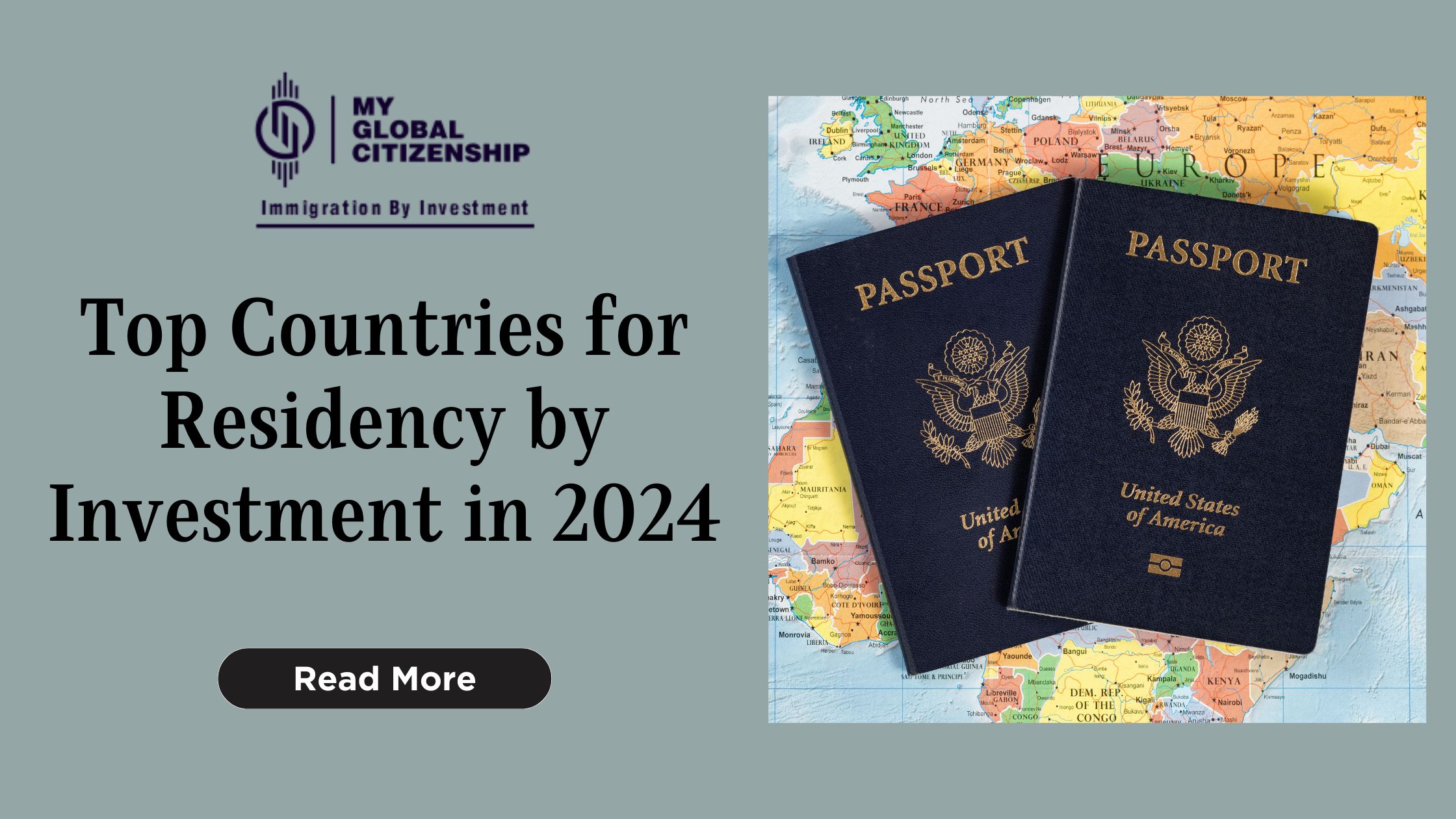The Biden Administration has brought forth significant changes to US immigration policies, departing from the restrictive stance of the previous administration. According to CNN News, over 45 million legal immigrants reside in the United States, the majority of whom are citizens. The administration has introduced important changes and opportunities for foreign investors seeking to obtain permanent residency through the US Green Card by Investment and US Investor Visa programs. The key impacts of the Biden Administration’s approach to immigration include the reversal of certain policies, the introduction of new initiatives, and the broader implications for immigrants, asylum-seekers, and the US immigration system as a whole.
Reversal of Restrictive Policies
Several severe, restrictive immigration laws established by the previous government have been overturned by the Biden government. The main goals of these adjustments were to restore humanitarian values, promote inclusivity, and provide aid to those suffering as a result of the previous administration’s actions. Among the notable adjustments were cancelling the “Remain in Mexico” policy, easing travel restrictions on countries with sizable Muslim populations, reinstating the “Remain in Mexico” policy, and reinstatement of the Deferred Action for Childhood Arrivals (DACA) program. Additionally, the Temporary Protected Status and Deferred Action for Childhood Arrivals programs give almost 1 million undocumented immigrants temporary authorization to reside and work in the United States.
Source: CQPress
The graphical representation above shows that the majority approves Biden’s Immigration Policies based on data collected between January 28th to February 1st 2021. 54% of the sample population are in favour of halting the construction of the US wall along the U.S.- Mexican border, 83% of the sample population are in favour of citizenship for undocumented immigrants brought to the US as children and 57% of the sample population are supporting reversing Trumps’s travel ban on people from predominantly Muslim countries.
New Initiatives and Reforms
To address many facets of the immigration system, the Biden Administration has also unveiled new projects and suggested improvements. This includes the U.S. Citizenship Act of 2021, a comprehensive immigration reform bill that aims to give undocumented immigrants pathways to citizenship, strengthen border security, and give family reunion priority. Executive orders have also been issued to create task groups that are dedicated to reuniting split-up families and tackling the underlying reasons for migration from Central American countries. The limit on refugees has been raised by Biden to 125,000 for the fiscal year 2022, which began on October 1, 2021.
US Green Card by Investment Program
The US Green Card by Investment Programme, also known as the EB-5 Immigrant Investor Programme, provides a mechanism for foreign investors who invest significant amounts in a qualifying US venture to get permanent residency. This program continues to give people the chance to invest in businesses that generate jobs, boost local economies, and get a Green Card for themselves and their families under the Biden Administration. The application procedure is now more streamlined for candidates due to the efficiency and openness of the program, which was brought about by the administration’s dedication to job creation and economic growth. By offering citizenship to 1 million foreign immigrants in 2022, the US has created a new history for the third time. In FY 2022, 1,023,200 immigrants who had dependent children and parents who had obtained US citizenship were naturalized.
The USCIS has processed 275,111 immigrant green card requests relating to work, in addition to the State Department’s petitions for overseas visas.
US Investor Visa Program
Citizens of treaty countries have a doorway to invest and operate a business in the United States owing to the E-2 Treaty Investor Visa, also known as the US Investor Visa Programme. The E-2 visa offers foreign investors the ability to live and work in the US on a renewable basis, but it does not give a straight path to permanent residency like the Green Card program. The Biden Administration’s focus on promoting entrepreneurship and innovation has created a favourable environment for investors seeking to establish or expand their business ventures in the United States. Through the U.S. diversity visa program, often known as the visa lottery, roughly 50,000 individuals earn green cards each year. The yearly number of diversity visas would be increased to 80,000 under legislation proposed by the Biden administration.
Enhances immigration enforcement and border security
The administration’s top priorities are still strengthening border security and providing safe, legal migratory routes. The almost $25 billion budgeted amount for US Customs and Border Protection (CBP) and Immigration and Customs Enforcement (ICE) is an increase of nearly $800 million from the level approved for 2023 when border management expenditures are taken into consideration. The budget allocates money for CBP to hire 350 more Border Patrol agents, $535 million for border security technology at and between ports of entry, $40 million to fight fentanyl trafficking and dismantle international criminal groups, and money for CBP and ICE to hire 460 more processing assistants. The financing would enable ORR to strengthen and build upon the programmatic enhancements this administration made to the unaccompanied minors program and would assist in the resettlement of up to 125,000 refugees in Fiscal Year 2024.
Challenges and Considerations
While the Biden Administration has brought positive changes, it is important to note that challenges and considerations remain. These include the potential for increased scrutiny in the adjudication process, stricter enforcement of program requirements, and ongoing legislative developments that may impact the eligibility criteria and investment thresholds. The winds of change brought by the Biden Administration have swept through US immigration policies, breathing new life into the US Green Card by Investment and Investor Visa programs. Prospective investors must stay vigilant, adapt to evolving legislative developments, and seek the guidance of experts to navigate the intricacies of the application process. By staying informed and harnessing the opportunities presented by the Biden Administration’s immigration policies, investors can shape their futures and contribute to the economic fabric of the United States.
Source: Boundless.com
The Biden Immigration policy tracker shows the number of new policies brought by the Biden Administration, the number of Trump policies the Biden administration revoked and the policies which are still ongoing, blocked or never finalized.
Implications and Future Outlook
The impact of the Biden Administration’s immigration policies extends beyond immediate policy changes. The US announced an increase in humanitarian aid to Mexico and Central America of about $23 million. The shift in approach displays a more profound dedication to human rights, inclusivity, and a compassionate immigration system. The policies of the Biden Administration address structural problems and would also affect the social and economic aspects of the nation, therefore impacting millions of immigrants’ lives. The bill would allow roughly 7 million undocumented immigrants to seek work permits, driver’s licenses, and protection from deportation. The Build Back Better Act, which would make several immigration reforms possible, is being pushed for passage.
The government, with its strong commitment to diversity, has ushered in an era of openness, effectiveness, and accessibility. The comprehensive bill would revamp the country’s current family-based immigration system, change the requirements for employment-based visas, and boost the number of diversity visas. It would also offer an eight-year road to citizenship for the estimated 10.5 million undocumented residents of the country. As a result of the Biden-Harris Administration’s plans to accept up to 20,000 refugees from Latin America and Caribbean nations in Fiscal Years 2023 and 2024, the United States is on track to more than triple the number of refugees admitted from the Western Hemisphere in only this Fiscal Year. By reversing restrictive measures, introducing reforms, and emphasizing a more welcoming approach, the administration has opened doors for many opportunities in the United States.
Conclusion
The US immigration laws have seen considerable changes under the Biden Administration, which has placed a strong emphasis on inclusivity, undone restrictive provisions, and proposed extensive revisions. These policy changes represent a dedication to a kinder and more welcoming approach, helping to shape the future of immigration in the US. Increased efficiency and reduced processing times have eased the path for aspiring investors, while enhanced communication channels have fostered better engagement with applicants. Given the administration’s commitment to comprehensive immigration reform, there is a good probability that these programs will be enhanced and expanded in the future. This promotes a climate that is advantageous for business investment and economic growth. Although the long-term effects of these regulations have not yet been completely realized, the immediate effect is encouraging.
If you still have any queries, connect with our team, and we will be more than happy to assist.






